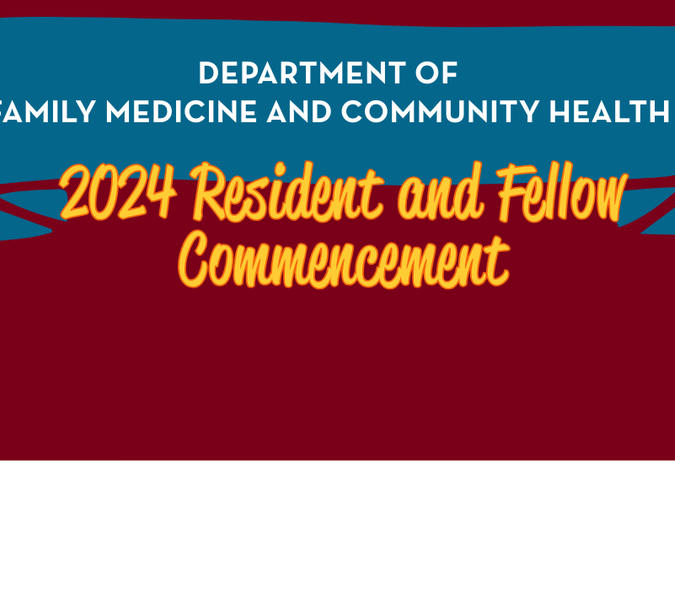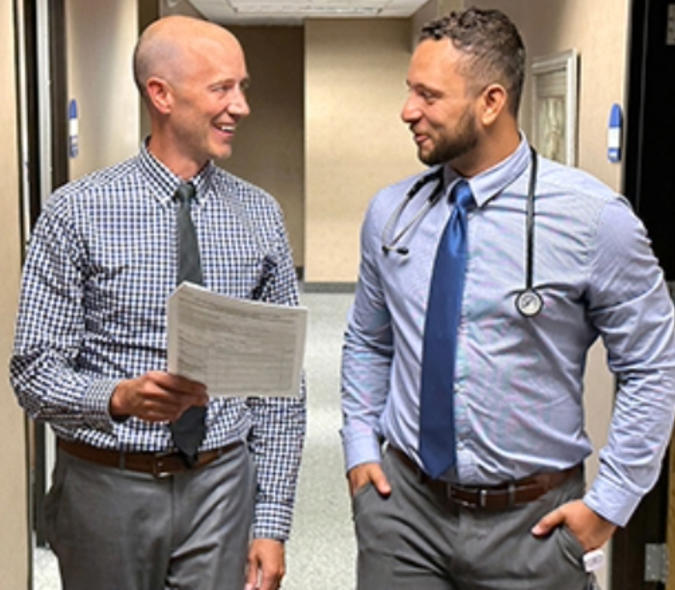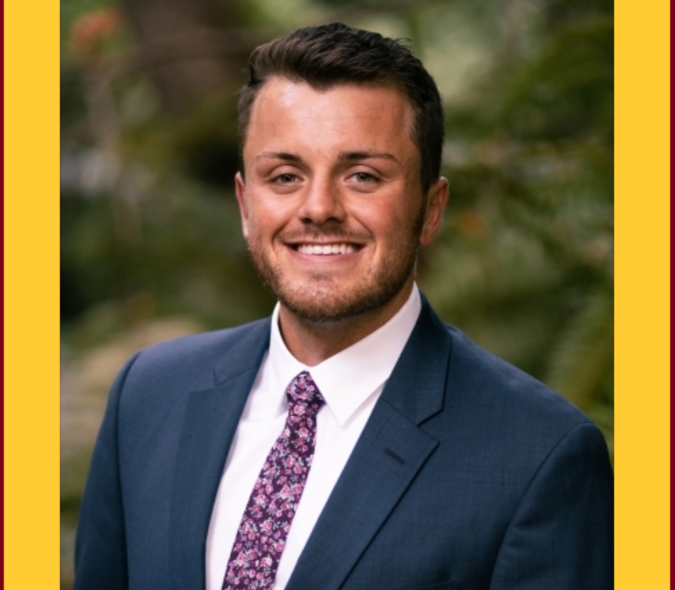
ALUMNI NEWS | Anne Doering, MD, Looks to the Future of the Resident Advocacy Cohort
In this interview with Anne Doering, MD, recent graduate of, and soon-to-be faculty at, North Memorial Family Medicine Residency Program, we discuss her role as co-leader of the Resident Advocacy Cohort (RAC), which launched in 2019. This fall, the RAC will kick off its second cohort.
First of all, congratulations on recently graduating from your residency program and gaining a faculty position with North Memorial Family Medicine Residency Program! You are also the co-leader of the Resident Advocacy Cohort. Can you tell us about RAC and your role in it?
Thank you!
The RAC began last year as a nine-month pilot program. It was quite successful, so we’re planning to start another cohort for this upcoming academic year. As co-leader, I have helped coordinate meetings and developed curriculum around advocacy. When I begin my new faculty position in November, I will continue this work.
How did the RAC come to be?
We started from the idea that we needed to build more advocacy and develop an advocacy curriculum for family medicine residents, and we used some prior work and other programs as a reference. Apart from that, we developed RAC from the ground up. Currently, it is a longitudinal elective course for residents. We are working on changing it so that participants can earn credit in the future.
In what ways do you think the RAC was successful in its pilot year?
The fact that we've made so much progress in the last year has been really exciting. The response from residents across the department has been awesome, and we have a lot of interest for next year. There is even an interest from faculty as well.
It’s been so gratifying to help raise awareness about advocacy as part of the work of family medicine physicians. I’ve heard from the residents who participated this past year about the ways in which they have felt like they gained skills. They are feeling empowered and ready to continue advocacy work, whether they're graduating and heading into new jobs or heading into their third year of residency.
Some residents who were involved said that this was one of the most significant experiences of their residency so far and that they're planning to continue advocacy work in a way that they wouldn't have otherwise.
Another big success of the last year is that we've been able to collaborate with different residency programs. We had residents from different programs come together, and we hosted guest speakers from our communities and from programs across the department.
We've been able to cross-pollinate between programs in a way that hasn't always been the case in the past. Our programs tend to work in isolation, at least from the resident perspective. So it's been really cool to have people from our other residency programs share their experiences and knowledge of various populations around the Twin Cities and greater Minnesota. They really show up in different communities. It’s been great to learn more about each other's programs and passions.
That's wonderful. What were some of the tactics of advocacy work taught in RAC?
We focus on building skills and actually applying those skills: how to engage and partner with your legislator while being a voice for your community; how to bring a resolution to the Minnesota Academy of Family Physicians; and how to follow a bill and advocate for it. We also talk about how to engage the Minnesota Legislature and your local community and help effect change on the policy level.
What inspires you to participate in advocacy?
One of the things that really drives me toward advocacy work is the sense that sometimes in our day-to-day work as physicians, we see all these opportunities for change. We see things that are frustrating. We see that the system doesn't work well for our patients in certain ways.
It's easy to feel ground down by that. But when you can take those concerns and go to someone who can be a broader voice for change and actually work on some policy to make a difference, it can feel much less like you're just keeping your nose to the grindstone. Rather, you are making a difference for your patients in a broader way. We are making a difference day to day in the exam room, but having the skills to be able to influence the system at a broader level can be really uplifting.
What do you think the RAC will strive toward in the next year and beyond?
One goal for the next year is to expand the cohort size. Last year it was open to one resident per program, and for 2020 we're opening it to two residents per program. At the same time, we're trying to keep it somewhat limited in size so that participants can easily collaborate. So we’ll expand it a bit but not too much.
In addition, we are using the curriculum that we developed for RAC and converting that into modules that can be used in each program's didactics across the department so that every single family medicine resident can develop advocacy skills.
We are hearing from residents and faculty that they see advocacy as part of their future work. Some want to take a deep dive and maybe do the RAC elective. Others may just want to get some of the basic skills in advocacy, which are essential to the work of family physicians. There are new family medicine milestones from the ACGME that say we’re expected to be teaching advocacy.
What can potential new members of RAC expect?
Prospective participants could expect to be part of a collaborative group that is supportive in trying these new skills. You don't have to have prior advocacy experience, and you certainly don't need to be an expert to get involved. Rather, the goal is to take people who want to engage in advocacy and then offer support, feedback, and encouragement as we all work on this together. That's been my experience. I certainly wasn't an expert, but I knew that this was something that I wanted to know more about. Being able to learn with a group of other folks who are in a similar situation was very helpful.
It’s just like with medicine: We don't know what we're doing at first. We start with a “see one, do one, teach one” model, and we apply that to advocacy so that you start learning and then you quickly do it, and you do it again. Then you can start teaching others.
What else should folks know about advocacy and the cohort?
RAC isn't the only way to get involved in advocacy. There are so many opportunities through MAFP and other local organizations.
Even if you simply tweet here and there in support of a bill, for instance, you can make advocacy work part of your day to day. The idea is that participating in advocacy should conform to whatever your abilities, interests, and time commitments are.
Advocacy work builds respect, camaraderie, and a team effort. I think we have huge potential for family physicians in our future to continue to collaborate and engage in advocacy.
Those are great reminders. Anything else?
We're looking for mentors to help residents who are interested in an advocacy leadership elective. Family physicians, alumni who may be reading this, or even community members who are interested and involved in advocacy work and support the work of family physicians — we would love to hear from you. If anyone is interested in collaborating with us on expanding our advocacy work, we'd be very interested in that. If anyone wants to reach out, they can contact myself or Dr. Katie Freeman.
For more on the Resident Advocacy Cohort, see this article written by the University of Minnesota Medical School.



